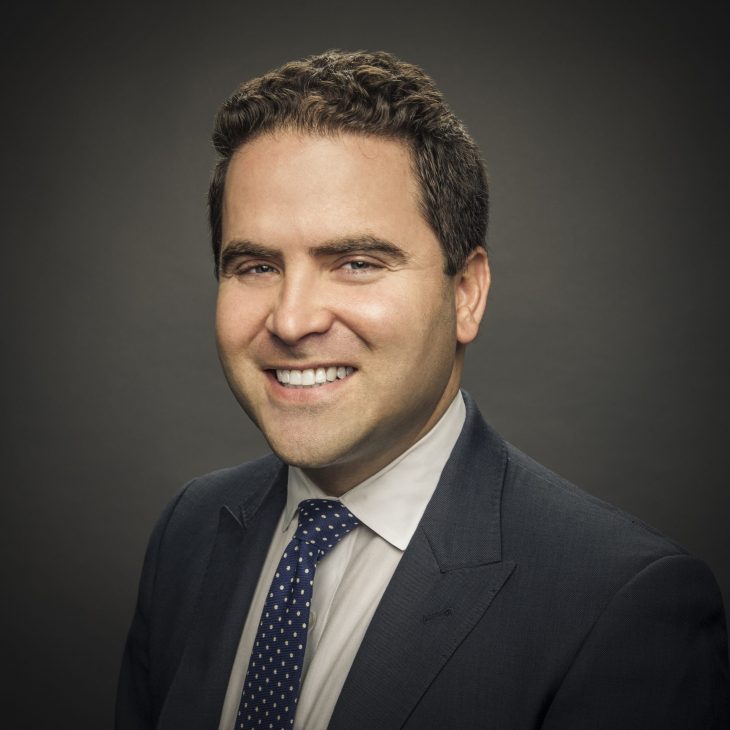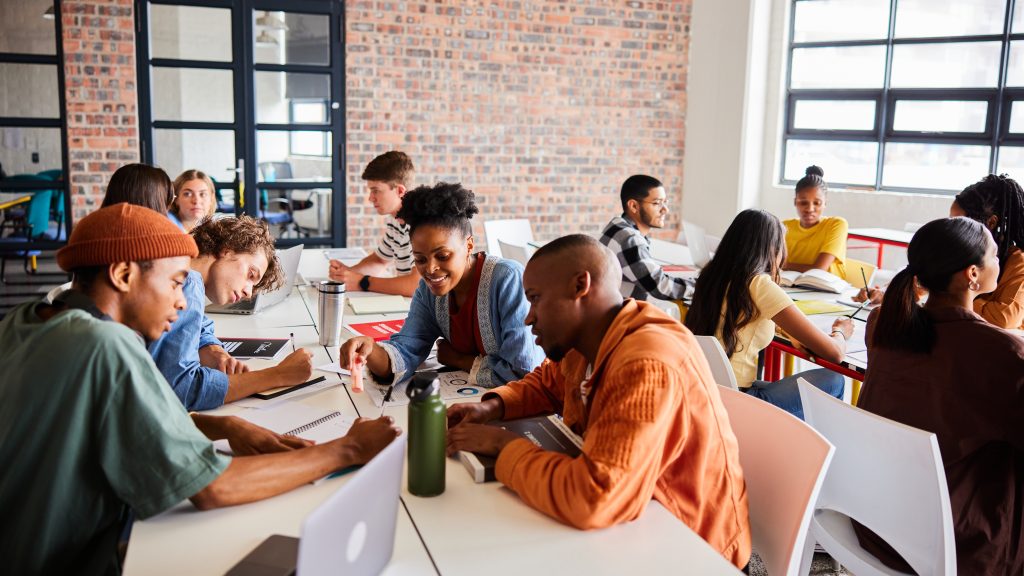Work in Progress: Learning and Relearning to Build a More Perfect Union
January 9, 2023

Just before the holiday break, I joined Interfaith America as Vice President of Public Affairs and Communications. In my new role, I am responsible for narrative strategy, overseeing creative assets that include our magazine and podcast, as well as our efforts to convey and amplify all the impactful work happening across the organization and through its multiple partnerships.
During the onboarding process, I took an online course about interfaith leadership developed by Interfaith America and available to everyone. As I worked through the lessons, I was struck by how they were simultaneously revelatory and familiar, acclimating me to a new environment while making me feel as though I had been there the whole time:
“Interfaith” is about how our interactions with those who are different from us have an impact on the way we relate to our religious and ethical traditions, and how our relationships with our traditions have an impact on our interactions with those who are different from us.
Throughout my life, I have participated in interfaith activities and have always understood their value, hence the familiarity. What I did not fully appreciate until recently was their essential role in sustaining America’s civic life and its pluralistic democracy, hence the revelation.
Growing up in New York City in the late 1970s through the 1980s, I absorbed the Sesame Street ethic of effortless interaction and comity across diverse identities, whether defined by race, religion, class, geographic heritage, or other factors. There was plenty of friction, conflict, discrimination, and injustice during that time and in that place, but my friends and I were confident that our communion and cooperation despite our differences represented progress that could not be turned back. Our generation would embody the promise of America and thereby realize it.
In 1994, when I turned down the opportunity to study in the Ivy League to attend college in Arkansas, a big part of my decision hinged on the desire to get to know a very different part of the country. I knew that I risked permanently limiting my perspective if I remained in an East Coast bubble, and I was endlessly curious about new people, places, and cultures.
Arkansas was indeed very different from where I was raised, and I profoundly broadened my knowledge. Ultimately, however, the experience only reaffirmed my conviction that our civic fabric was strong enough to hold the tremendous diversity that exists across America, and that our common commitment to peaceful co-existence was secure.
It’s important to note that interfaith cooperation requires more than a religiously diverse group of people working together … To build interfaith cooperation requires intentional engagement of our diverse identities.
The events of the last 20 years have eroded that concord and confidence. We witnessed the anti-Muslim backlash after the attacks of Sept. 11, 2001. Economic dislocation and inequality increased and became more apparent. The advancements we thought we made on behalf of marginalized and disadvantaged groups were called into question and in some cases reversed. In other words, what some of us took for granted — the harmony and functionality of our unique American experiment — now requires our full attention and engagement.
What some of us took for granted — the harmony and functionality of our unique American experiment — now requires our full attention and engagement.
In between my college years in Arkansas and the beginning of the new century that brought the recent turmoil, I went to graduate school at Oxford and met Eboo Patel. We became good friends and I closely followed what he and my new colleagues built over the last 20 years. He and they anticipated — in a way that I did not — how encouraging interfaith cooperation would be necessary to ensure that our nation can continue to endure and prosper.
As Interfaith Youth Core grew into what is now Interfaith America, I was engaged with mission-driven work in the nonprofit sector, through my community service, and as an elected official in government. I have always been motivated by a desire to do as much good as I can, to help others in need, and confront unfairness and injustice wherever it exists.
We can actively, immovably disagree on matters of essential truth and still engage in interfaith cooperation … The goal is not sameness or relativism; it is mutual respect, inspiring relationships, and common action for the common good.
The good fortune and timing of my upbringing, combined with my unbounded optimism (and perhaps a healthy measure of naivete) led me to believe that our nation had already transcended many of our fundamental differences, understood the value of our diversity and how to live together peacefully. It is with great humility that I recognize not only that we must never stop learning, but that often we must relearn what we thought we already knew.
I am grateful to have the opportunity to continue my personal education and growth as part of the team at Interfaith America, as well as to be in service to our nation as we collectively learn and relearn what it takes to create a stronger and healthier pluralistic society. Our founders were prescient and intentional when they introduced the Constitution as an attempt to form a “more” perfect union, as our country — just like ourselves — will always be a work in progress.
Share
Related Articles
American Civic Life
American Civic Life
We Commemorate, We Commit: Out of Catastrophe, a Conversation on Connection and Repair
American Civic Life
Faith Based Efforts Work in Vaccine Uptake: Now Let’s Make it Easy



